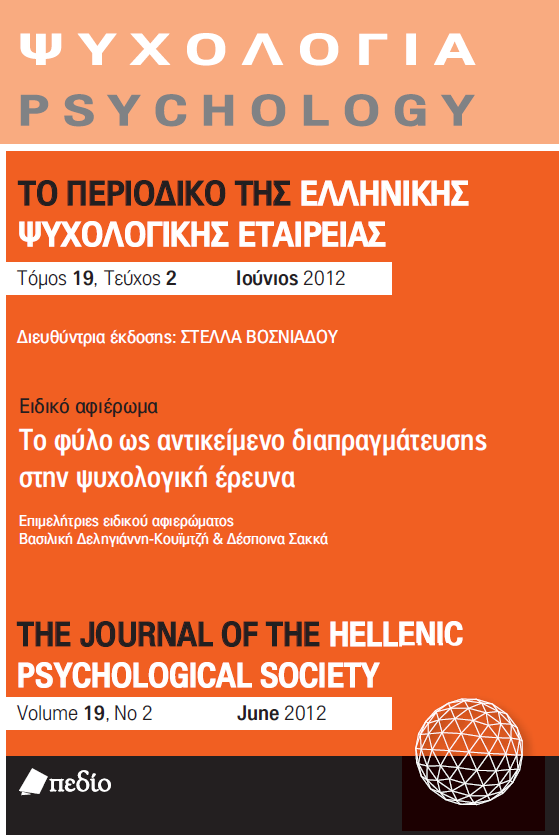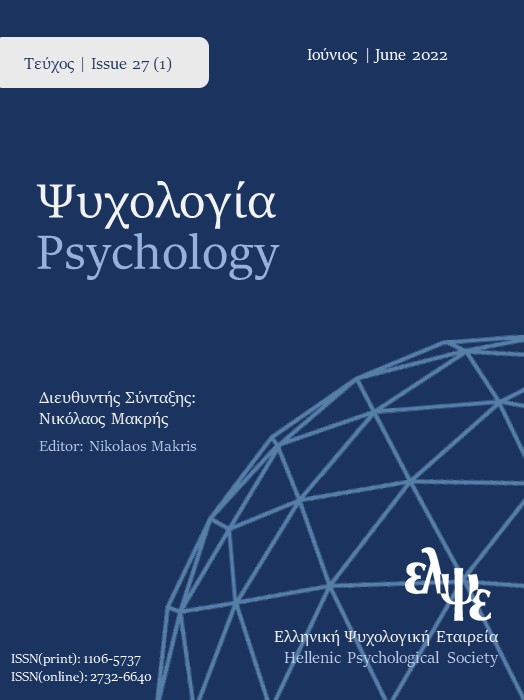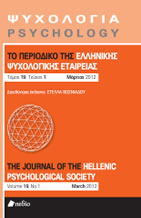Φεμινισμός και ψυχολογία: Συνέπειες στην έρευνα, στην κλινική πρακτική και στη συλλογική κοινωνική δράση

Περίληψη
Οι εργασίες αυτού του τεύχους εμπίπτουν στην ευρύτερη περιοχή της φεμινιστικής κριτικής ψυχολογίας, καθώς αναδεικνύουν την ιδιαίτερη και συχνά περιθωριοποιημένη εμπειρία διαφορετικών ομάδων γυναικών, τοποθετούν και ερμηνεύουν τα θέματα που πραγματεύονται σε σχέση με την υπάρχουσα κοινωνικο-πολιτισμική ιδεολογία όσον αφορά το φύλο ή/και την εθνική ταυτότητα και συνδέουν την επιστημονική διερεύνηση με την εφαρμογή στην πράξη, την ενδυνάμωση των συμμετεχόντων και την κοινωνικό-πολιτική δράση. Στο πλαίσιο του παρόντος σχολιασμού, επισημαίνονται τρία σημαντικά ζητήματα που έφερε στο προσκήνιο η φεμινιστική κριτική στην ψυχολογία, τα οποία αποτελούν ταυτόχρονα αντικείμενο συζήτησης σε όλες τις εργασίες. Τα στοιχεία αυτά είναι (α) η υιοθέτηση της ποιοτικής μεθοδολογίας στην ψυχολογική έρευνα, (β) η αναγνώριση της αλληλεπίδρασης της ταυτότητας του φύλου με άλλες ταυτότητες και (γ) οι έννοιες της κοινωνικής δικαιοσύνης και της κοινωνικής δράσης.
Λεπτομέρειες άρθρου
- Πώς να δημιουργήσετε Αναφορές
-
Αθανασιάδου Χ. (2020). Φεμινισμός και ψυχολογία: Συνέπειες στην έρευνα, στην κλινική πρακτική και στη συλλογική κοινωνική δράση. Ψυχολογία: το περιοδικό της Ελληνικής Ψυχολογικής Εταιρείας, 19(2), 230–236. https://doi.org/10.12681/psy_hps.23619
- Τεύχος
- Τόμ. 19 Αρ. 2 (2012)
- Ενότητα
- ΕΙΔΙΚΟ ΑΦΙΕΡΩΜΑ

Αυτή η εργασία είναι αδειοδοτημένη υπό το Creative Commons Attribution-ShareAlike 4.0 International License.
Το περιοδικό ΨΥΧΟΛΟΓΙΑ έχει υιοθετήσει μία πολιτική Platinum open-access. Τα έξοδα υποβολής, επεξεργασίας ή δημοσίευσης των εργασιών καλύπτονται από την Ελληνική Ψυχολογική Εταιρεία. Τα πνευματικά δικαιώματα των δημοσιευμένων εργασιών προστατεύονται από την άδεια 'Creative Commons Attribution-ShareAlike 4.0 International'. Οι Συγγραφείς διατηρούν τα Πνευματικά Δικαιώματα και χορηγούν στο περιοδικό το δικαίωμα της πρώτης δημοσίευσης. Η άδεια αυτή επιτρέπει σε τρίτους, να χρησιμοποιούν την εργασία σε οποιαδήποτε μορφή, με την προϋπόθεση της διατήρησης των διατυπώσεων που προβλέπονται στην άδεια σχετικά με την αναφορά στον αρχικό δημιουργό και την αρχική δημοσίευση στο περιοδικό ΨΥΧΟΛΟΓΙΑ. Επιπλέον, κάθε διανομή της εργασίας οφείλει να γίνεται με τους ίδιους όρους διανομής, δηλαδή με την ίδια άδεια Creative Commons.





